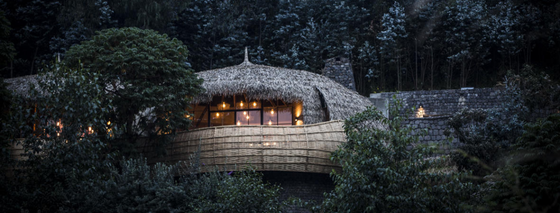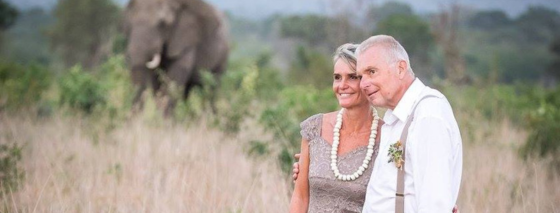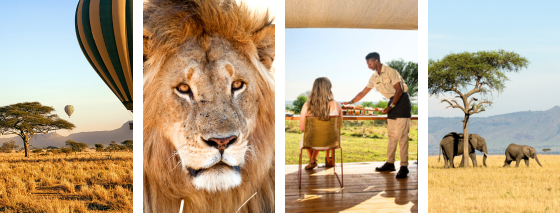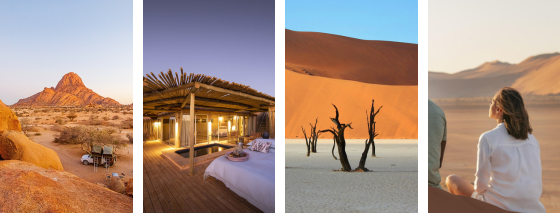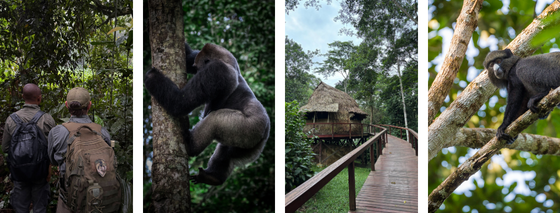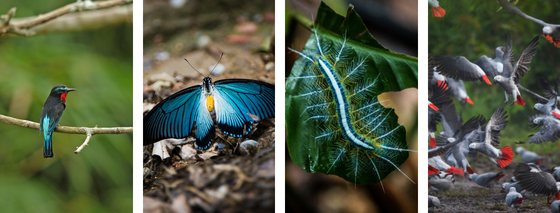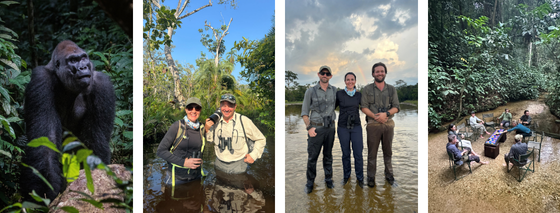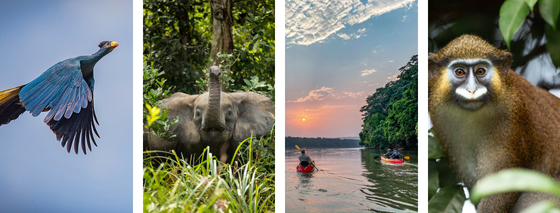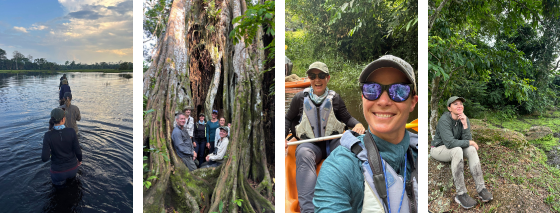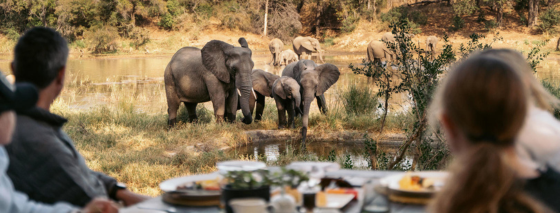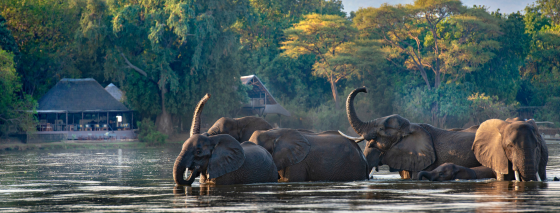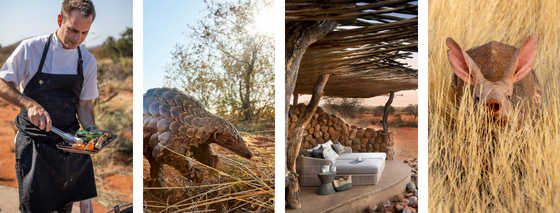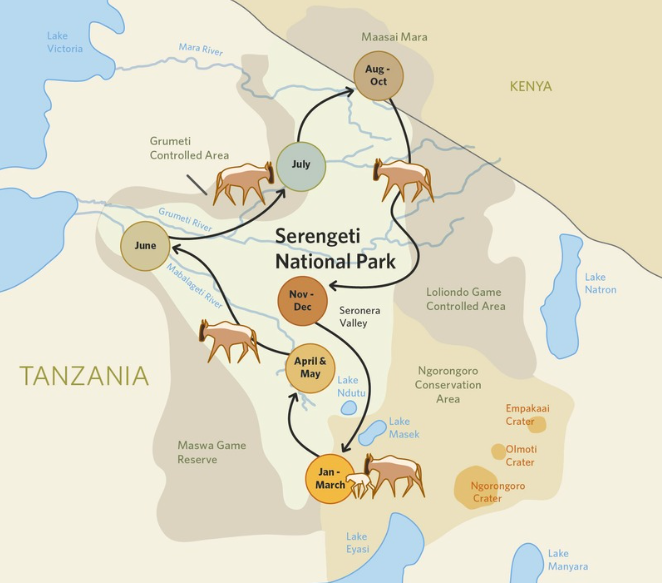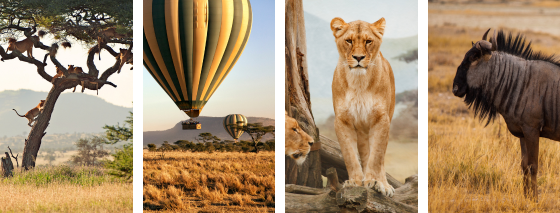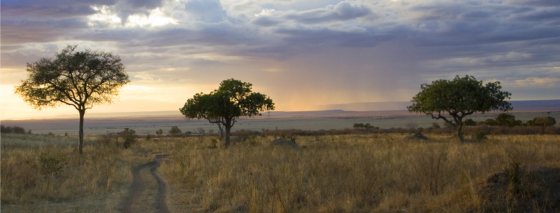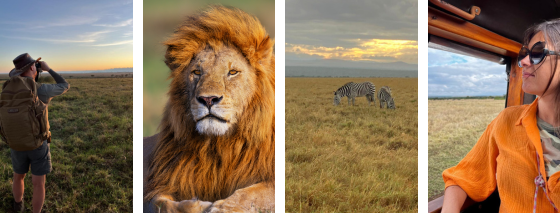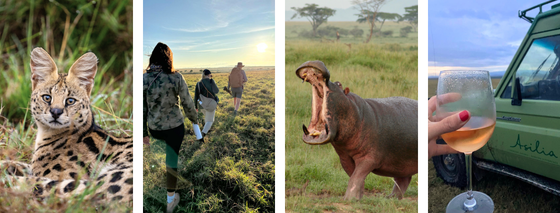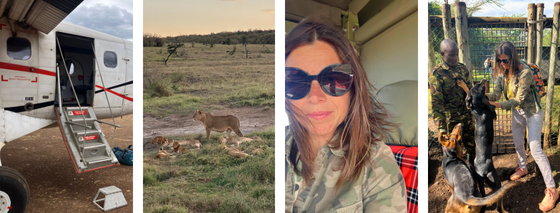Unveiling Africa’s most exquisitely designed luxury lodges
Lodge design in Africa is unlike anywhere else in the world. The finest examples blend effortlessly with their surroundings and exude a modern African aesthetic, rooted in culture and luxury. These lodges offer both seclusion and sweeping views, all while treading lightly on the earth. Nowhere is this more evident than at Wilderness Bisate Lodge in Rwanda’s Volcanoes National Park.
We share an insider take on what makes Bisate so unique—and include a few other standout lodges across southern Africa, from Earth Lodge in Sabi Sands, South Africa to Namibia’s Wolwedans.
Wilderness Bisate Lodge and Bisate Reserve, Rwanda
Bisate is tucked into a natural amphitheatre on the edge of Rwanda’s Volcanoes National Park, where its thatched, pod-like forest villas perch among the eucalyptus trees overlooking the misty peaks where Dian Fossey once walked.
“When they were conceptualising Bisate,” says Tiffany Franks, General Manager of Wilderness Bisate, “Nick Plewman, the architect, travelled through Rwanda and came across Nyanza—the King’s Palace. It’s a dome-shaped structure with a beautiful woven thatch inside. That, and the way gorillas build new nests every night, were the two inspirations. So at Bisate, we have these palatial nests up in the sky, overlooking three volcanoes; and from our new Bisate Reserve lodge, you can see six of the eight volcanoes that make up the Virunga Mountain range.”
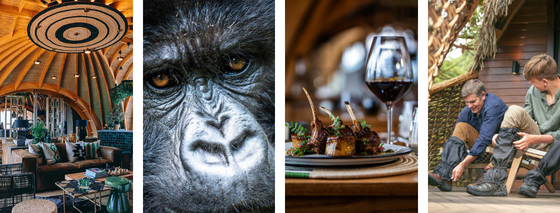
Every corner of Bisate tells a story of both culture and conservation. While the domes resemble traditional grass thatch, they’re an eco-innovation. “The story behind our famous Bisate thatch is incredible,” says Ryan Dewes, Concession Manager at Wilderness Bisate. “We used recycled plastic that comes from the ocean to make the fibre thatch. It looks like natural thatch, but it’s fire repellent and more waterproof. Natural thatch would need to be replaced every year. This is more practical and massively reduces our carbon footprint.”
Sustainability runs through the DNA of the lodge. Bamboo balustrades, sourced from local communities, are replaced by hand every year, supporting the local economy. Walls curve in organic forms, echoing the surrounding hills, while handwoven Rwandan baskets and imigongo prints bring a sense of identity and warmth. “We’ve used many local materials, including excavated volcanic rock,” says Tiffany.
But Bisate isn’t just beautiful architecturally. It’s alive with sound and sensation. At dawn, the forest hums with birdlife. Mist curls along the treetops, sometimes parting to reveal the muscular silhouette of Mount Bisoke. The highlight here, of course, is tracking mountain gorillas—an emotional, once-in-a-lifetime encounter in the nearby Volcanoes National Park.
With the reforestation and replanting of bamboo within Bisate Reserve, it’s hoped that someday the gorillas may venture even closer. After the incredible time spent in the presence of wild gorillas, guests often gather in the wine cellar at Bisate, where a fire roars and a big leather couch invites you to sink in and share your story. “There’s nothing like having sambaza—our local fried fish from Lake Kivu—and banana chips with a big glass of Shiraz,” says Ryan. “It’s the perfect post-gorilla trekking moment.”
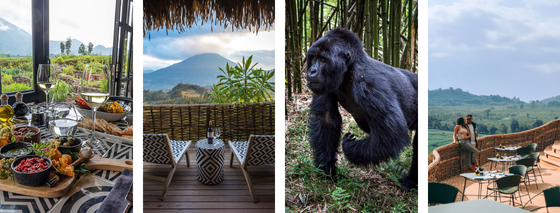
We asked Tiffany and Ryan about their favourite spaces here. They’re hard to pick, but a few rise above the rest. “At Bisate Reserve, we’ve just built the Eagle’s Nest,” says Ryan. “It’s a lookout deck with a 360-degree view of the national park, all six volcanoes, the local town, and the mountains that roll down to Kigali. My absolute favourite spot for a G&T at sunset—you can even see the volcanoes glowing when they’re active, all the way to Congo.”
At the original Bisate Lodge, Tiffany’s favourite is a little more intimate. “From the Bisate deck at about 6pm, you have a view of the sky that turns a deep twilight-blue colour, because of the altitude and volcanic activity. Here we’ve got these fantastic chairs with Rwandan imigongo print that contrast with the bamboo balustrades –and then there’s the African Redwoods with canopies that stretch over the main lodge. You look out towards Mount Bisoke and Karisimbi, and the light turns golden and shines down toward the forest below. That’s my favourite.”
Wrapped in the misty drama of the Virunga Mountains, Bisate is a place where design, story, and close encounters with mountain gorillas fuse into something unforgettable.

Earth Lodge, Sabi Sand, South Africa
In the private Sabi Sand Reserve bordering South Africa’s Kruger National Park, Earth Lodge appears to emerge from the landscape. You don’t so much arrive at the luxury lodge as uncover it. The entrance is almost invisible, carved into the landscape like a secret passage. And once inside, it’s a masterclass in earthy elegance.
The design is bold and tactile, with raw textures balanced by refined forms. It feels like a luxurious cave—cool, quiet, and deeply connected to the landscape.
Each suite is an artwork in itself: a bespoke slate drinks cabinet glows under soft light, kudu horns arranged like a floral display add a touch of wild sculpture, and a leather headboard is crowned by a murmuration of hand-forged metal birds. Copper rails, dulled to a soft patina, line the open wardrobe. The pieces are unexpected, but deeply rooted in place.
Outside, elephants often pass within metres. You might wake to the whoop of hyenas or fall asleep to the rumble of distant lions. And safari drives here are thrilling, with some of the most reliable Big Five sightings in Africa, including the elusive leopard.
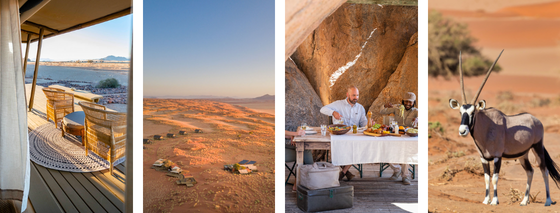
Wolwedans, NamibRand Nature Reserve, Namibia
Wolwedans, set within the vast NamibRand Nature Reserve in Namibia, is a lodge that surrenders to the landscape rather than competes with it. Elevated wooden decks and tented structures appear to hover above the ochre sand, treading so lightly they seem destined to disappear.
That’s the intention. “In 200 years,” says Stephan Brückner, the man behind Wolwedans, “there will be no evidence that thousands of people stayed here.”
Inside the Desert Lodge, as well as the tented rooms at Dune Camp, natural textures, soft linens, and canvas blinds create a calm, grounded space. The décor is minimalist, with simple wood, soft light, and flaps pulled back so that you feel part of the landscape.
From your window, you can watch the noble-looking oryx stride over the dunes and from your deck, you may catch a glimpse of a lappet-faced vulture circling in an ever-tightening spiral towards the sun. At night, the heavens put on a show of stars above the desert.
With no piped water or power lines, Wolwedans runs entirely off-grid. Organic herbs, vegetables, and fruit are grown in shaded desert gardens, cutting emissions while delivering fresh, flavourful food rooted in place.
These three lodges only scrape the surface of the extraordinary design found in Africa. A few others include the eco-luxury beach villas of Azura Benguerra Island in Mozambique, Miavana by Time + Tide in Madagascar, Jabali Ridge in Ruaha National Park, Tanzania and &Beyond’s Sandibe Okavango Safari Lodge in Botswana, where “an intriguing curl and sweep of shingled wood” of the main lodge comes into view, “resembling a giant scaled pangolin at rest.”
Happy travelling,
The Leopard Team
Whether it’s your first Big Five safari, an off-the-grid wilderness escape, or a face-to-face moment with mountain gorillas, we’re here to make it seamless, tailored entirely to you, right down to the lodge that suits your style.



